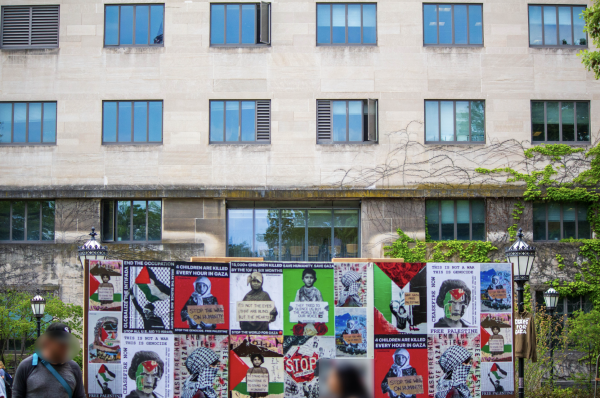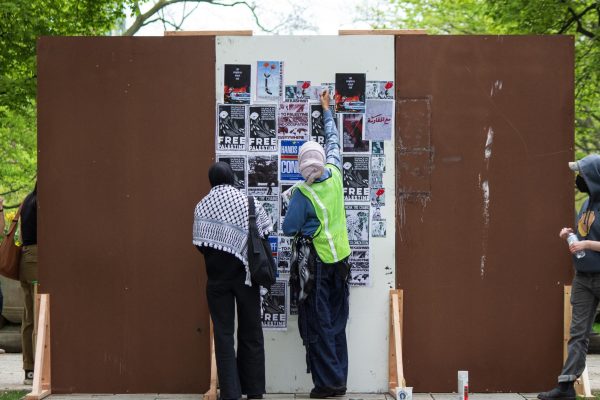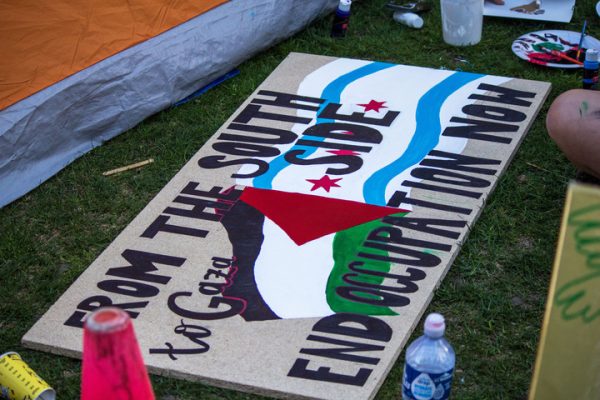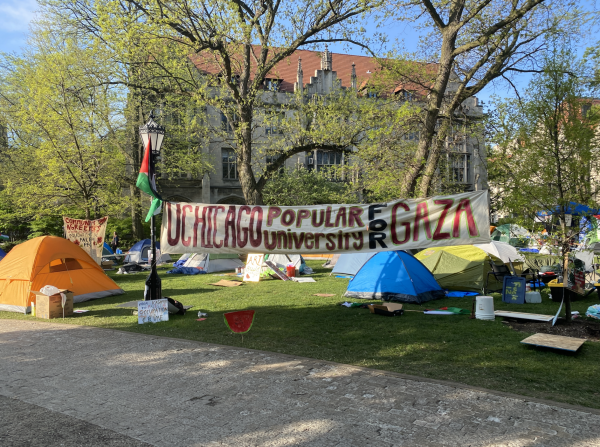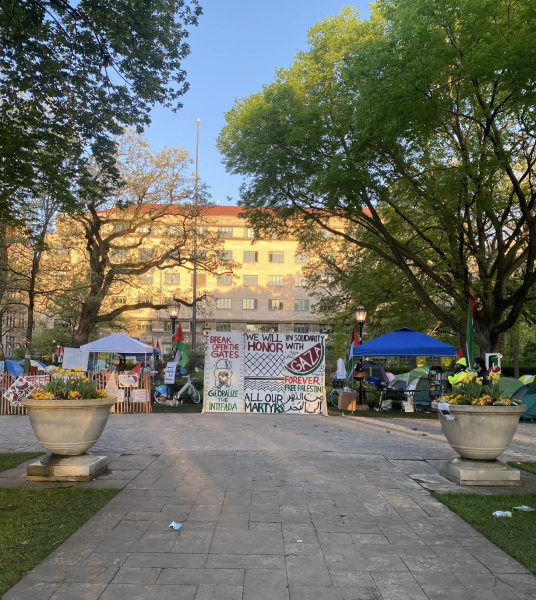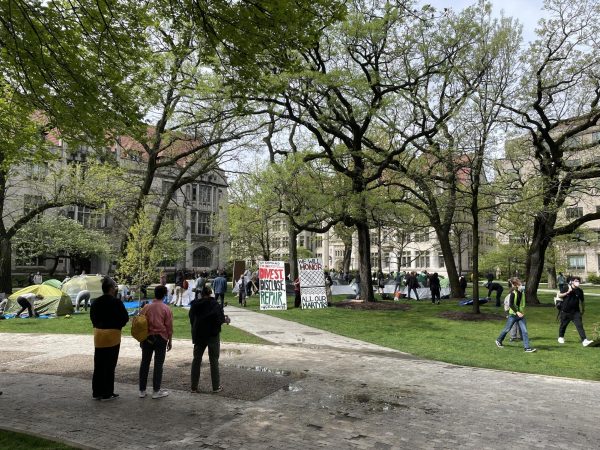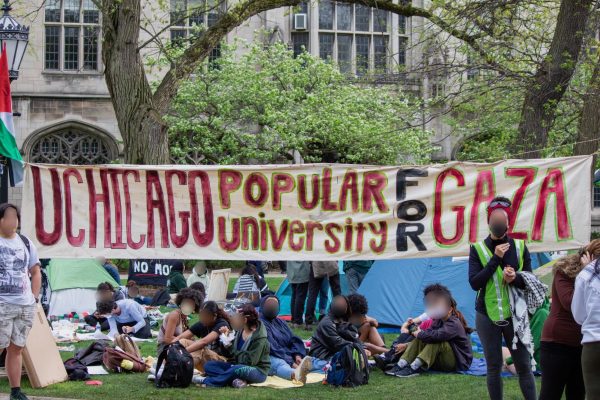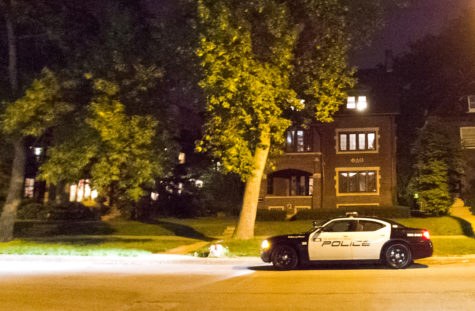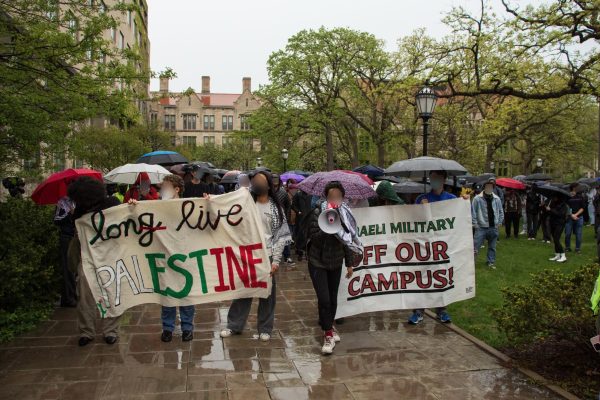UChicago Medicine Offers Monkeypox Testing; Infected Students to Isolate in Stony Island
As Chicago reports 947 cases since June, UChicago outlines monkeypox precautions before fall quarter starts.
University of Chicago Medicine
September 29, 2022
UChicago Medicine is offering monkeypox testing to individuals showing rashes or lesions, according to a University announcement on August 24. Students with symptoms or concerns about monkeypox should contact Student Wellness for treatment advice.
Most precautionary measures outlined in the announcement are similar to the University’s response to COVID-19. On-campus students who are infected with monkeypox will isolate in Stony Island Residence Hall, which will also continue to house students who test positive for COVID-19.
In addition, the same University team will conduct contact tracing of both monkeypox and COVID-19 cases. Students should email mpvreport@uchicago.edu to report monkeypox cases. To maintain the confidentiality of infected individuals, contact tracers will not send wide notifications and will only contact exposed individuals with high risks of infection.
When asked how the University will handle monkeypox-positive and COVID-positive students in the same residence hall, spokesperson Gerald McSwiggan said: “Because these are two very different diseases, their means of spreading are also very different. Students will be housed in separate apartments within Stony Island according to whether they have COVID-19 or monkeypox, and staff members will take recommended precautions against the spread of each disease.”
Monkeypox can spread through contact with exposed surfaces, such as bedsheets or mattresses. McSwiggan said that Stony Island “staff members will take recommended precautions against the spread of each disease. This includes many of the CDC’s recommendations for isolating at home.”
Eligible students can seek out the city’s vaccination sites. In Chicago, vaccines are currently only available to those identified as high-risk: any close contacts, and “sexually active bisexual, gay and other men who have sex with men, and transgender persons.”
Although anyone can become infected with monkeypox, many of the current outbreak’s first cases were reported among men who have sex with other men. Chicago’s city government advises gay, bisexual, and other men who have multiple or anonymous sexual partners to be aware of their increased risk for contracting the virus.
Among the 947 cases in Chicago as of September 15, 92 percent were from men. Case numbers in the city appear to be dropping, with 49 new cases reported in the last week, compared to 80 and 112 cases the prior two weeks, respectively.
In response to The Maroon’s inquiry about new sexual health education initiatives to protect against disease transmission, McSwiggan pointed to the University’s Monkeypox FAQ page. “In addition to individualized care through UChicago Student Wellness and resources available through the Chicago Department of Public Health, including recommendations for vaccination and for lowering the risk of MPV transmission through sex, the LGBTQ Student Life and Center for Identity + Inclusion teams are always available to provide support and make connections. We want everyone at UChicago to be confident in seeking care.”
According to Allison Arwady, Commissioner of the Chicago Department of Public Health, North Side neighborhoods like Lake View, Uptown, and Edgewater have had the highest number of cases; however, cases of the virus have been reported in 65 of Chicago’s 77 community areas, including Hyde Park.
Arwady noted that vaccination rates remain highest in areas with the highest case numbers. “I would like to see some more vaccination happening, especially on the South Side,” Arwady said.




